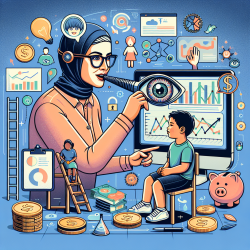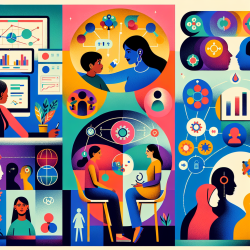At TinyEYE, we are committed to providing the best online therapy services to schools, focusing on data-driven decisions to create positive outcomes for children. Today, we delve into the findings from a research article titled Overcoming barriers for people with disabilities participating in income-generating activities: A proposed development framework by Tinta and Kolanisi (2023). This blog aims to help practitioners improve their skills by implementing the research outcomes or encouraging further research.
Understanding the Barriers
The research identifies several barriers faced by people with disabilities in sheltered workshops, which include:
- Inability to use standard tools necessary for vocation
- Lack of artistry skills
- Non-stimulating activities
- Language and communication difficulties
- Lack of funds and motivation
These barriers hinder their participation in income-generating activities and weaken their competitiveness in the labor market. Addressing these barriers is crucial for enhancing their quality of life.
Proposed Development Framework
The proposed framework outlines intervention strategies categorized into four main areas: education, health, livelihood, and empowerment. Below, we summarize these intervention strategies:
Education
- Provide quality training programs that include proper tool usage and basic vocational skills.
- Modify working equipment to accommodate various impairments.
- Recruit and train specialized instructors to teach new skill sets that match labor market requirements.
Health
- Employ multilingual instructors to overcome language barriers.
- Provide assistive devices such as sign language services, speech software, and Braille printing.
Livelihood
- Encourage the use of sustainable practices like reuse, reduce, and recycle.
- Teach financial awareness and the value of savings.
- Implement financial participation in interventions, such as stipends for attending training workshops.
Empowerment
- Encourage decision-making to promote independence.
- Organize motivation programs and celebrate achievements to boost self-esteem.
- Provide development and growth opportunities to satisfy self-actualization needs.
Encouraging Further Research
While the proposed framework offers valuable strategies, future research is needed to test the effectiveness of these intervention strategies. Practitioners are encouraged to engage in high-quality impact evaluations and collaborate with stakeholders to validate and refine these approaches.
To read the original research paper, please follow this link: Overcoming barriers for people with disabilities participating in income-generating activities: A proposed development framework.










